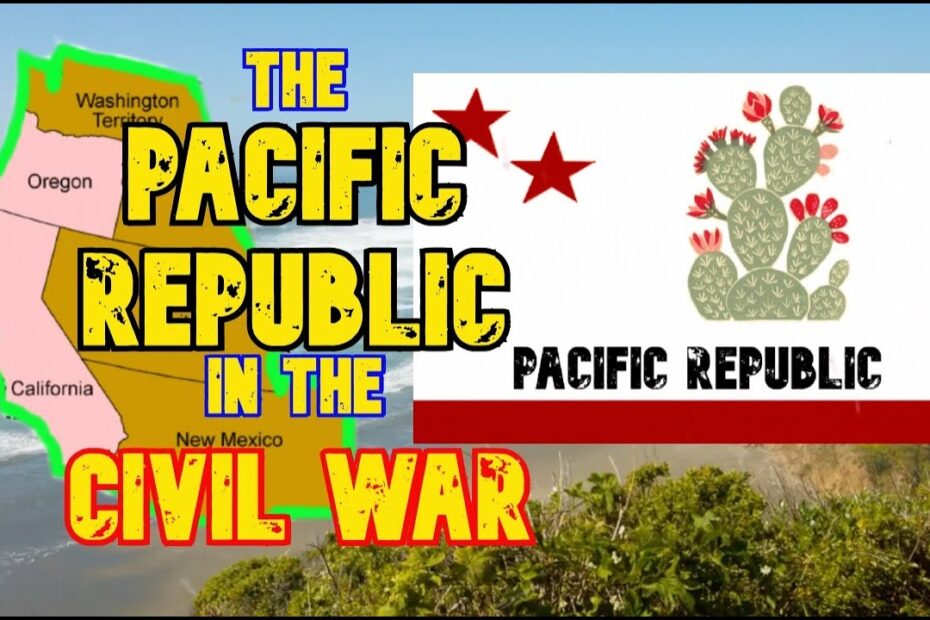The Pacific Republic: Unpacking the Dangerous Myths of a Nonexistent Nation
Where Exactly Is This “Republic” Hiding? Atlantis’ Shy Cousin?
Let’s address the floating elephant seal in the room: The Pacific Republic doesn’t exist. Yet, somehow, it’s “real” enough to spawn conspiracy threads, TikTok lore, and a suspiciously detailed Wikipedia page that keeps getting deleted. Unlike Atlantis or Narnia, this mythical nation supposedly drifts somewhere between Hawaii and Fiji, yet mysteriously avoids detection by satellites, sailors, and Google Maps interns. Rumor has it the entire country runs on coconut Wi-Fi and trades seashells as currency. *Sure, Jan.*
Myth-Busting or Myth-Boosting? The Lemonade Stand of Geopolitics
The Pacific Republic’s “government” (allegedly) operates like a fever dream of democracy:
- President: A rotating panel of disgruntled seagulls.
- National Anthem: A remix of whale songs and dial-up internet noises.
- Biggest Export: Regret, from people who tried to kayak there.
The real danger? Some folks take this nonsense seriously. Imagine pitching a “Pacific Republic timeshare” to your aunt Karen. *Poof*—there goes her retirement fund.
When Fiction Forgets to Blink: The Ripple Effect
Every few years, someone “discovers” the Pacific Republic anew, armed with blurry photos of a sandbar and a manifesto written in sunscreen. The myths aren’t just harmless fun—they’re weirdly persuasive. Conspiracy theorists cite it as proof that “governments hide everything,” while entrepreneurial grifters sell “citizenship” NFTs. Meanwhile, actual Pacific Islanders face climate crises and colonial legacies, overshadowed by a fantasy that can’t even bother to get its own longitude right.
So, let’s toast to imagination! But maybe save the diplomatic immunity requests for places that… you know, *exist*. Or don’t. The Pacific Republic’s “embassy” (a parked RV in Nevada) is still taking applications.
Why the ‘Pacific Republic’ Fantasy Threatens Regional Stability and Sovereignty
Imagine this: a plucky group of map enthusiasts, fueled by one too many coconut lattes, decides to redraw the Pacific’s geopolitical boundaries based on “vibes” and a vague TikTok trend. Enter the ‘Pacific Republic’—a utopian daydream where borders are decided by wave heights and the collective agreement that pelicans should have voting rights. While it sounds like the plot of a rejected Pixar sequel, this whimsical fiction isn’t just harmless fun. It’s accidentally rearranging chess pieces in a game nobody agreed to play. Real nations, already juggling climate crises and tuna treaty disputes, now have to swat away awkward questions like, “But what if the ocean *did* file for sovereignty?”
The Great Coconut Conspiracy: How Imaginary Borders Spark Real Chaos
- GPS systems short-circuiting over debates about whether Hawaii “belongs” to a volcano goddess or the U.S. Postal Service.
- A surge in DIY passport stamps (featuring doodles of starfish) clogging customs lines from Fiji to California.
- Diplomatic Twitter spats over who gets custody of that one rogue buoy floating near international waters. Hint: It’s still Canada’s.
Existing Pacific nations, already side-eyeing each other over fishing rights and whose turn it is to host the “Apocalypse Preparedness Summit,” aren’t amused. The ‘Pacific Republic’ fantasy treats sovereignty like a timeshare presentation—opt-in, opt-out, no pressure! But when your neighbor starts building sandcastles (read: crypto-fueled micro-nations) in disputed waters, suddenly everyone’s territorial starfish get prickly. Cue maritime standoffs, misplaced flags, and at least three viral videos of a crab hoisting the wrong banner.
Sovereignty, Sandcastles, and Other Things That Don’t Mix Well
The real kicker? This fictional republic ignores centuries of cultural and political nuance faster than a seagull ignores “Do Not Feed” signs. Proponents argue, “But what if we all just… shared?”—a charming sentiment until you realize it’s code for “Who’s cleaning up the diplomatic confetti?” Picture this: Kiribati wakes up to find its exclusive economic zone now “co-managed” by an anonymous Discord group. Tuvalu’s prime minister gets tagged in a Change.org petition to rename the country “Turtlevana.” Chaos? Absolutely. Absurd? Delightfully so. Sustainable? Only if your business model is selling popcorn to the UN Security Council.
So yes, the ‘Pacific Republic’ fantasy is a rollercoaster of well-meaning chaos—a geopolitical rom-com where nobody wins except the lawyers. Next time someone suggests reorganizing the Pacific over a game of *Risk*, remind them: the ocean already has a government, and its name is El Niño.
